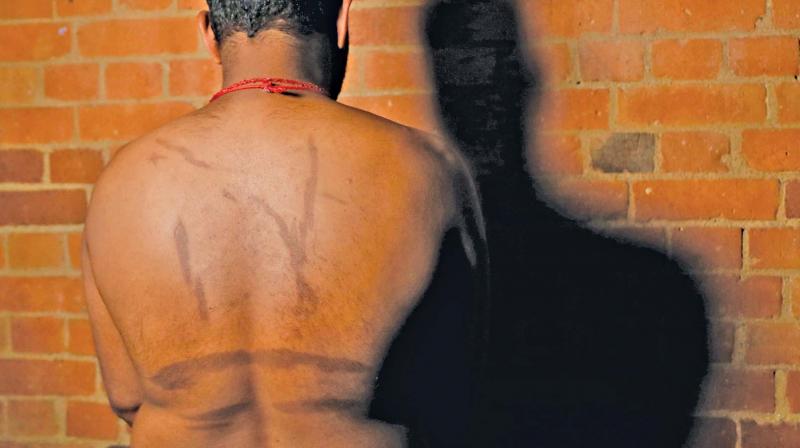Dozens of Tamils describe rape, torture by Sri Lanka

LONDON: One of the men tortured in Sri Lanka said he was held for 21 days in a small dank room where he was raped 12 times, burned with cigarettes, beaten with iron rods and hung upside-down.
Another man described being abducted from home by five men, driven to a prison, and taken to a “torture room” equipped with ropes, iron rods, a bench and buckets of water. There were blood splatters on the wall. A third man described the prisoners as growing accustomed to the sound of screaming. “It made us really scared the first day but then we got used to it because we heard screaming all the time.”
Raped, branded or beaten repeatedly, more than 50 men from the Tamil ethnic minority seeking political asylum in Europe say they were abducted and tortured under Sri Lanka’s current government. The previously unpublished accounts conjure images of the country's bloody civil war that ended in 2009 - not the palm-fringed paradise portrayed by the government.
One by one, the men agreed to tell their stories to The Associated Press and to have the extensive scars on their legs, chests and groins photographed in July and August. The AP reviewed 32 medical and psychological evaluations and conducted interviews with 20 men. The strangers say they were accused of trying to revive a rebel group on the losing side of the civil war. Although combat ended 8 years ago, the torture and abuse occurred from early 2016 to as recently as July this year.
Piers Pigou, a South African human rights investigator who has interviewed torture survivors for the past 40 years in the world's most dire countries, says the sheer scale of brutality is nothing like he has heard before. “The levels of sexual abuse being perpetuated in Sri Lanka by authorities are the most egregious and perverted that I've ever seen.”
Most of the men say they were blindfolded as they were driven to detention sites. They said the majority of their captors identified themselves as members of the Criminal Investigations Department, a police unit that investigates serious crimes. Some, however, said it appeared their captors and interrogators were soldiers based on the types of uniforms and insignia they were wearing. One man reported seeing army uniforms hanging on a clothes line and many of the men wearing army boots.
In an interview last week in Colombo, Sri Lanka Army Commander Lt. Gen. Mahesh Senanayake denied the torture allegations. “The army was not involved - and as for that matter - I'm sure that police also were not involved,” he said. “There's no reason for us to do that now.”
Despite its denials that widespread torture still persists among its security forces, Sri Lanka has repeatedly failed to investigate war crimes allegations stemming from its 26-year civil war. That conflict was between the Liberation Tigers of Tamil Eelam, who were fighting for an independent homeland for the Tamil minority, and the Sinhalese-dominated government. The Tigers, as they were known, were designated as a terrorist organization after a wave of suicide bombings.
The government’s forces, however, were also accused of targeting civilians, which is considered a war crime under international law.

